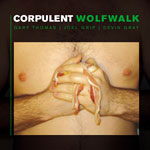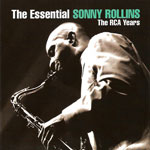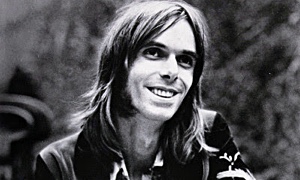Home » Jazz Articles » Film Review » Miles in Paris
Miles in Paris
 Miles Davis
Miles DavisMiles in Paris
Warner Music Vision 71550-2
2005 (1990)
While there's considerable controversy about the validity of the late trumpeter Miles Davis' musical choices during the last decade of his life, anyone who had the opportunity to experience him in concert during that time knew that, while he wasn't charting new territory as he had during previous decades, he was still a vital force with which to be reckoned. His studio releases may have felt a little too safe. Latter-period albums like Tutu and Amandla were, in fact, more a vehicle for producer/bassist Marcus Miller than they were for Miles, who rarely interacted with the musicians—when there were musicians (Tutu being more a studio creation created from liberal multi-tracking rather than live, in the studio, performances). Instead, Miles would wait for the group tracks to be finished, coming in to record his trumpet over top of the pre- recorded music at the back end.
Still, the music documented on the whopping twenty-CD Box set The Complete Miles Davis at Montreux, 1973-1991 from 1984 onwards demonstrates that Miles could still give it. And while his groups, as they progressed through the 1980s became more and more structured and less about real group interplay, they still had an energy—and Miles himself, was in fine form for the most part; somewhat surprising given Miles' constantly fluctuating health.
With this reissue of the 1990 Miles in Paris DVD, there's a chance to reassess Miles performing material largely from his last two studio recordings (ignoring, for the moment, the posthumous semi-disaster of 1992's Doo-Bop). The DVD reissue expands the original VHS release by nearly twenty minutes and four songs, but is still considerably less than the complete concert experience documented on Live in Munich (Geneon, 2002), which features some of the same tunes, but from a concert a year earlier. While the interspersion of interview clips throughout Miles in Paris irritatingly disrupts the flow of the music more than once, the septet's performances are in many ways more vital than those on Live in Munich—and, while there's no surround mix, it's still actually a better overall group mix than on Munich, where the keyboards are, at times, noticeably absent.
The set opens up with the Michael Jackson hit "Human Nature, although by this point the tune had been completely transformed from the relatively faithful pop confection reading on You're Under Arrest (Columbia, 1985) into a powerful solo vehicle for saxophonist Kenny Garrett—the only one, along with keyboardist Kei Akagi and, of course, Miles himself, left in the band who could honestly be said to understand the jazz tradition. Soloing modally over a one-chord vamp for the last half of the thirteen-minute tune, he continually pushes the energy of the band higher to its ultimate climax, making it an early high point.
Miles' replacement of a long line of outstanding guitarists including Mike Stern, John Scofield and Robben Ford with "lead bassist Joseph "Foley McCready seemed an odd choice at the time. McCready definitely came from more of a rock/funk background—something Miles considered a plus. Consequently his solos—while strong enough—lack the harmonic intrigue of the string-slingers who came before him. Still, he solos with energy and commitment on "Tutu —marred both by a more up-tempo reading than the sneaky version on the 1986 album of the same name, and the fact the it's interrupted not once, but twice by Miles' interview footage.
In fact, the abbreviated set list isn't really the problem; it's the interview footage that ultimately sinks the set. Miles was never one for many words, and while he renders pithy views on subjects ranging from South Africa to the media, melody and art, one wishes they'd either been grouped as a separate extra or not included at all. Comments like—"South Africa? I wouldn't go there unless it was, you know, cool. If it's not cool down there I can't go down there. I would play there for Bishop Tutu, but I'm not gonna play there for the whites, prejudiced people, racists; I wouldn't be able to play one note. The only thing I do is to help things by naming a record Tutu or Amandla —aren't especially revealing or deep. Had Miles something of more interest to say, it might justify the interruption of the set, but all nine interview clips are equally superficial. And the interview clips aren't even delineated as separate chapters, so it's not possible to skip by them easily, meaning you have to listen to them every time you watch the DVD.
Still, the performances are strong when left on their own. Garrett, in particular, excels throughout the set. Keyboardist Key Akagi gets relatively little solo space, but when he does get the chance to stretch he's got plenty to say. Bassist Benjamin Rietveld and drummer Ricky Wellman make for a strong rhythm section. And Miles is in strong voice, sharp and punchy at times, delicate and fragile elsewhere.
It's not a perfect release by any means. The fact that it hasn't received the surround sound mix treatment is unfortunate, and the video is a little grainy. Still, despite its shortcomings Miles in Paris is a more satisfying watch than Live in Munich perhaps, in fact, because some of the fat has been trimmed and what is left is a shorter but more focused set. As representative of where Miles was in the last four years of his life, Miles in Paris is an engaging, if not completely satisfying, watch.
Visit Miles Davis on the web.
Personnel: Miles Davis: trumpet; Benjamin Reitveld: bass; Joseph "Foley McCreary: lead bass; Ricky Wellman: drums; John Bigham: electric percussion; Kenny Garrett: saxophone, flute; Kei Akagi: keyboards.
Track Listing: Introduction; Human Nature; Jilli; Miles on the Media; Hannibal; Miles on Art; Hannibal (continued); Miles on His Sound; Don't Stop Me Now; Amandla; Miles on South Africa; Tutu; Miles on Africa; Tutu (continued); Miles on Melody; Tutu (continued); Miles on Friends; Wrinkle; Miles on Posterity; New Blues; Miles on Fame; Mr. Pastorius/Musician Credits; Closing Credits.
Approximate Running Time: 78 Minutes; no extras.
Tags
PREVIOUS / NEXT
Support All About Jazz
 All About Jazz has been a pillar of jazz since 1995, championing it as an art form and, more importantly, supporting the musicians who make it. Our enduring commitment has made "AAJ" one of the most culturally important websites of its kind, read by hundreds of thousands of fans, musicians and industry figures every month.
All About Jazz has been a pillar of jazz since 1995, championing it as an art form and, more importantly, supporting the musicians who make it. Our enduring commitment has made "AAJ" one of the most culturally important websites of its kind, read by hundreds of thousands of fans, musicians and industry figures every month.
























